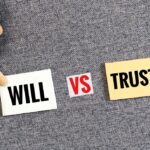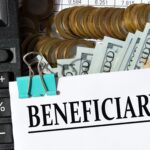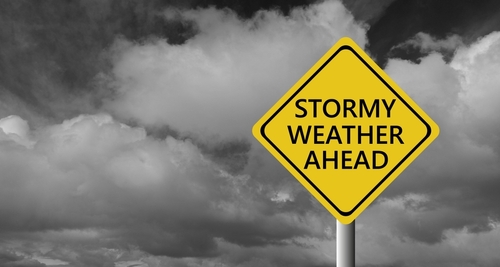Florida’s New Tax-Free Hurricane Supplies: What You Need to Know
Starting August 1, 2025, Florida will offer permanent sales tax exemptions on essential hurricane supplies. This landmark legislation replaces the state’s temporary tax holidays with year-round savings, ensuring families can stock up on critical emergency items without the added financial strain of sales tax.
Understanding which items qualify for these tax exemptions can help you build a comprehensive emergency kit while maximizing your savings. The hurricane damage attorneys at EC Law Counsel break down everything you need to know about Florida’s new tax-free hurricane supplies program and how it can benefit your family’s preparedness efforts.
Background on Florida’s Permanent Tax Exemption Policy
Governor Ron DeSantis signed Florida’s fiscal 2025-2026 budget on June 30, 2024, marking a significant shift in the state’s approach to emergency preparedness incentives. The new legislation eliminates short-term sales tax holidays that previously offered temporary relief during specific periods, replacing them with permanent sales tax exemptions on designated hurricane supplies.
The Florida Department of Revenue has confirmed that these new exemptions will take effect on August 1, 2025, giving residents year-round access to tax-free emergency supplies. This permanent structure removes the pressure of shopping during limited-time windows and allows families to gradually build their emergency kits throughout the year.
This policy change reflects Florida’s commitment to long-term disaster preparedness and acknowledges that hurricane preparation shouldn’t be constrained by calendar dates. The permanent exemptions provide consistent savings opportunities and encourage proactive emergency planning among residents.
Complete List of Tax-Free Hurricane Supplies
1. Batteries
All essential battery types will be permanently exempt from sales tax, including:
- AA batteries
- AAA batteries
- C batteries
- D batteries
- 6-volt batteries
- 9-volt batteries
These battery exemptions cover the most commonly needed sizes for flashlights, radios, and other emergency devices that keep families connected and safe during power outages.
2. Portable Generators
Portable generators capable of producing 10,000 running watts or less qualify for the tax exemption. This category covers most residential backup power solutions, from small inverter generators for essential appliances to larger units that can power significant portions of a home during extended outages.
3. Waterproof Tarps
Waterproof tarps measuring 1,000 square feet or less are included in the tax-free category. These tarps serve multiple emergency purposes, from temporary roof repairs after storm damage to ground coverings and water collection during extended power outages.
4. Portable Gas Containers
Portable gas cans designed for gasoline or diesel fuel with a capacity of five gallons or less qualify for tax exemption. These containers are essential for storing fuel for generators, vehicles, and other equipment during emergencies when gas stations may be closed or inaccessible.
5. Ground Anchor Systems and Tie-Down Kits
These systems help secure outdoor furniture, equipment, and temporary structures before storms arrive. Proper tie-down equipment can prevent property damage and reduce dangerous flying debris during high winds.
6. Safety and Detection Equipment
Several critical safety devices are included in the tax exemption:
- Smoke Detectors and Smoke Alarms: Both electrical and battery-operated devices listed by nationally recognized testing laboratories qualify for the exemption.
- Carbon Monoxide Detectors: These must produce a distinct audible alarm and meet Florida Building Commission requirements and approval standards.
- Fire Extinguishers: Portable, manually operated fire extinguishers qualify, whether rechargeable or nonrechargeable, provided they meet specific safety requirements.
7. Personal Safety Items
- Life Jackets: All U.S. Coast Guard-approved life jackets are included in the tax exemption, providing essential water safety equipment for flood situations.
- Bicycle Helmets: Previously, only youth bicycle helmets were tax-exempt. The new legislation expands this exemption to include all bicycle helmets, recognizing cycling as an important transportation method during emergencies.
8. Health and Protection Supplies
- Sunscreen: Products primarily intended to absorb, reflect, or scatter ultraviolet radiation qualify. Cosmetics and other products not primarily designed for sun protection remain taxable.
- Insect Repellent: These products help protect against disease-carrying insects that may proliferate after storms and flooding.
9. Already Tax-Free Items
Several essential emergency supplies were already exempt from Florida sales tax and remain so:
- Bottled water
- First aid kits
- Many grocery store food items
Essential Hurricane Preparation Beyond Shopping
While securing tax-free hurricane supplies represents an important step, comprehensive hurricane preparedness extends beyond purchasing equipment. Effective preparation includes developing a detailed family emergency plan that identifies evacuation routes, establishes communication protocols, and designates meeting locations.
Home preparation measures such as trimming trees, securing loose outdoor items, and reinforcing windows and doors can significantly reduce storm damage. Regular maintenance of purchased emergency supplies ensures everything functions properly when needed.
Staying informed through reliable weather services and local emergency management agencies helps families make timely decisions about evacuations and safety measures. Consider signing up for local emergency alerts and maintaining multiple information sources during severe weather events.
Protecting Your Investment and Recovery Rights
Hurricane preparation involves a significant financial investment in supplies and home improvements. When storms do cause damage despite your best preparations, insurance coverage becomes critical for recovery. Unfortunately, insurance companies sometimes attempt to minimize legitimate claims or delay settlements, leaving families struggling with repair costs.
Is your insurance company attempting to deny, delay, or downplay your hurricane damage claim? Contact EC Law Counsel to schedule a consultation. Our legal team has over a decade of experience helping homeowners in Florida recover compensation after hurricanes and other extreme weather events.





